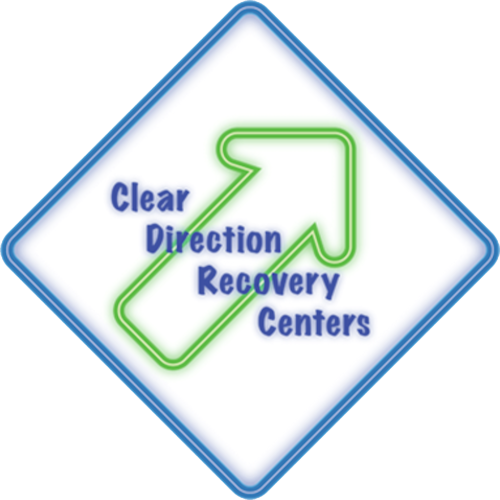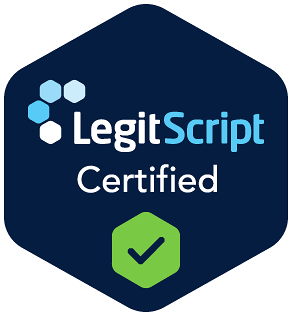When it comes to addiction and mental health recovery, choosing the right treatment program can make all the difference in achieving long-term success. For many, the decision often comes down to two popular options: Partial Hospitalization Programs (PHP) and Intensive Outpatient Programs (IOP). Both offer structured care designed to support individuals throughout their recovery journey, but they vary in terms of intensity, commitment, and care structure.
So, what sets PHP vs IOP apart? How do you determine which one is the right fit for you or a loved one? In this article, we’ll break down the key differences between these two treatment options, explore their requirements, effectiveness, pros and cons, and discuss the important role aftercare plays in recovery. At Clear Direction Recovery Centers, we offer both PHP and IOP to ensure that individuals receive the most appropriate and effective mental health and substance abuse treatment in New Jersey based on their unique needs.
Partial Hospitalization Programs (PHP) and Intensive Outpatient Programs (IOP) both provide structured treatment for addiction and mental health disorders, but they differ in intensity and time commitment.
Partial Hospitalization Programs (PHP) are an intensive treatment option that involves 6-8 hours of care per day, five days a week. It’s suitable for individuals who need more support than traditional outpatient care but don’t require 24/7 supervision. This program offers comprehensive services, including therapy, medical supervision, and psychiatric care, designed to stabilize individuals and address both the physical and psychological aspects of addiction or mental health challenges. The structured environment supports individuals during critical recovery stages while allowing them to return home at night.
Intensive Outpatient Programs (IOP), on the other hand, are less intensive, requiring 3-4 hours of care per day, three to five days a week. This more flexible program is ideal for individuals who need support but can still manage their daily responsibilities, such as work or family. IOP offers structured therapy and counseling, making it a great option for those with a solid recovery foundation or those transitioning from more intensive treatment like PHP. While still providing essential therapeutic support, IOP allows individuals more freedom to engage in their everyday lives.
Both programs in New Jersey are designed to meet different needs based on the level of care required and individual circumstances.
How to Determine What is the Right Fit: PHP or IOP?
- If the individual requires more intensive support for managing their addiction or mental health condition, PHP may be the better option. IOP can be ideal for those who have a solid foundation in recovery but need continued care and support.
For individuals with significant responsibilities at work or home, IOP provides more flexibility. PHP may be better for those who can commit to a more structured daily schedule with more extensive care.
If the individual has strong support from family and friends, IOP may offer the right balance of care and independence. However, individuals lacking a strong support system may benefit from the more intensive care and structure offered by PHP.
Individuals in the early stages of recovery or those requiring crisis intervention may benefit from the more intensive environment of PHP. IOP is better suited for those who are in later stages of recovery and are ready to reintegrate more into their daily routines.
Ultimately, a thorough assessment by a medical professional can help determine which treatment program is best suited to the individual’s specific recovery needs.
What Are the Requirements for PHP and IOP?

PHP Requirements
- Individuals may need a higher level of care due to the severity of their addiction or mental health condition.
- A structured living situation is often necessary, as individuals return home after daily treatment but require a stable environment to ensure recovery.
- Medical or psychiatric supervision may be required depending on the individual’s specific needs.
IOP Requirements
- Ideal for individuals who have already stabilized in their recovery but still need regular therapeutic support.
- Individuals must be able to manage daily responsibilities (work, school, etc.) while participating in treatment.
- While medical or psychiatric needs are still addressed, they are typically less intensive than those required for PHP.
Both programs require an initial assessment to determine the appropriate treatment plan and ensure that the individual’s needs are met within the chosen program.
What is the Effectiveness of PHP and IOP?
PHP Effectiveness
PHP is highly effective for individuals who need a more intensive treatment approach. Studies show that PHP is a cost-effective option for patients requiring higher levels of care. A review of PHPs highlighted their positive impact on social functioning without drastically disrupting a patient’s environment. This makes PHP an excellent choice for individuals who need structured, day-long care to stabilize their conditions and begin long-term recovery. PHPs also offer a comprehensive mix of therapeutic services that address both the physical and emotional aspects of addiction.
IOP Effectiveness
IOP is especially effective for individuals in the later stages of recovery who need ongoing support but with more flexibility. A 2015 literature review found that IOPs significantly reduced alcohol and drug use and improved mental health among people struggling with substance use disorders (SUD). This flexibility makes IOP ideal for individuals who need treatment but are ready to balance recovery with their personal and professional responsibilities. The structured support offered in IOP helps individuals maintain long-term recovery and manage potential setbacks.
Both programs are backed by robust data showing their effectiveness in treating mental health and substance use issues. PHP offers intensive care for those who need more structure, while IOP supports ongoing recovery with a flexible approach.
What Are the Pros and Cons of PHP and IOP?
- Provides more intensive care and structure.
- Ideal for those who need daily support but don’t require full-time inpatient care.
- Effective for individuals in crisis or with more severe conditions.
- Typically includes comprehensive addiction therapy, counseling, and medical support.
- Requires a significant time commitment (6-8 hours a day, 5 days a week).
- Less flexible, may not fit well with individuals with significant work or family obligations.
- It may feel overwhelming for individuals in the early stages of recovery.
- This approach is more flexible, allowing individuals to balance treatment with daily responsibilities.
- Offers significant support with a lower time commitment (3-4 hours a day, 3-5 days a week).
- Ideal for individuals with a strong foundation in recovery or as a step-down from more intensive treatment.
- Less intensive, which may not be enough for individuals in need of more support.
- Requires a higher degree of self-discipline and motivation, as patients are not under constant supervision.
- It may not be appropriate for individuals with severe or complex addiction and mental health needs.
What is the Role of Aftercare in Recovery?

Aftercare plays a crucial role in maintaining long-term recovery. It helps individuals continue their healing journey once their initial treatment has ended, providing support, encouragement, and accountability.
Aftercare services often include:
- Ongoing therapy and counseling.
- Support groups such as Narcotics Anonymous (NA) or Alcoholics Anonymous (AA).
- Relapse prevention planning.
- Continued medical or psychiatric support.
Both PHP and IOP offer aftercare planning as part of their services, and they may also help individuals transition to other support systems once their formal treatment concludes. Aftercare ensures that individuals continue to receive the necessary support as they integrate back into their daily lives.
Clear Direction Recovery Centers Offers PHP and IOP in NJ
At Clear Direction Recovery Centers in New Jersey, we are committed to helping individuals find the treatment that best suits their needs. Whether you’re considering a Partial Hospitalization Program (PHP) or an Intensive Outpatient Program (IOP), we offer both options to ensure you receive the right level of care. Our experienced team will work with you to design a personalized treatment plan that supports your recovery goals. Contact us now!


